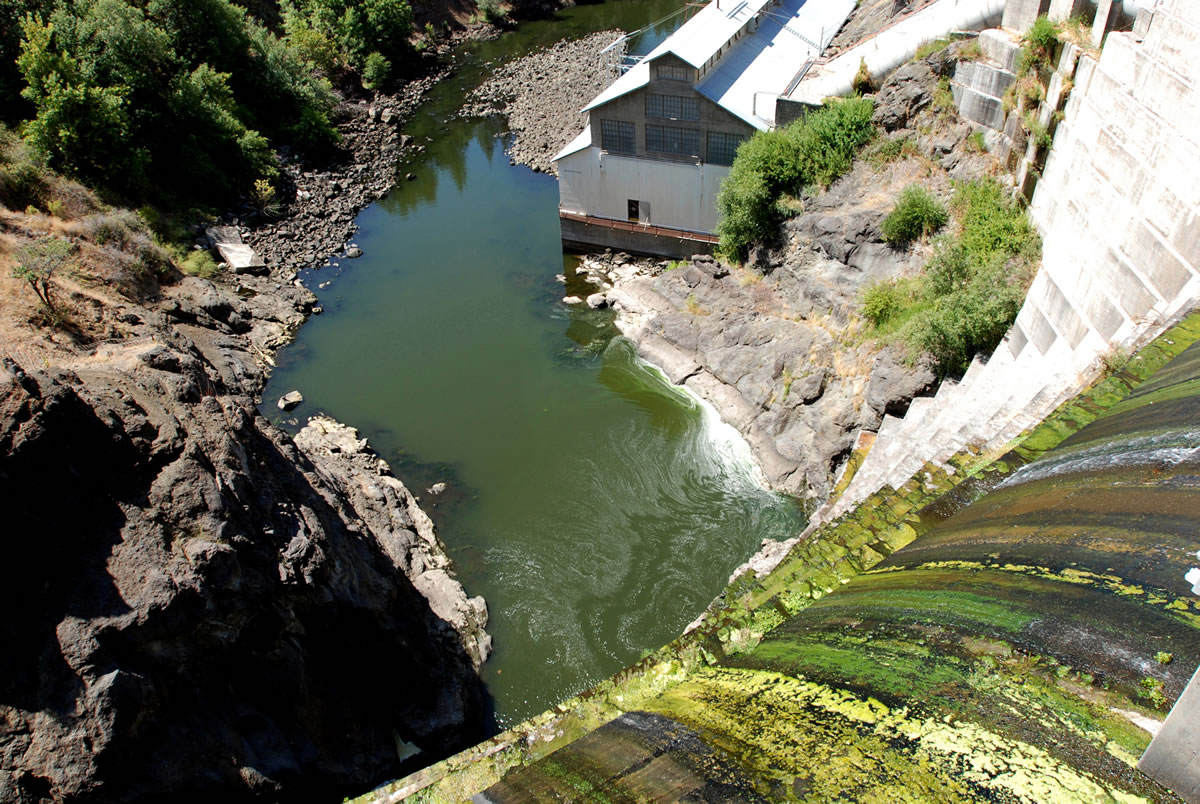PORTLAND — The process to relicense the hydroelectric dam system on the Klamath River will likely move forward if Congress fails to act by the end of the year on historic settlement agreements to remove four of the dams.
The Klamath River basin, which straddles Oregon and California, has long been the site of intense political fights over the sharing of scarce water between farms and fish. The agreements to remove the dams, hammered out by farmers, tribes, environmentalists and states, were a compromise to restore the river for imperiled salmon and steelhead, and give farmers greater certainty about irrigation water.
Congress must pass legislation to implement the agreements, but House Republicans have blocked it for years, fearing it would set a precedent for dam removal.
In October, U.S. Rep. Greg Walden — a staunch dam removal opponent whose Oregon district includes one of the dams — said he was close to drafting a bill in the House. His office this week said the lawmaker would convene a meeting Thursday with key congressional leaders to discuss “a way forward” on Klamath Basin water issues.
If there’s no legislation by the end of the year, when the agreements expire, several parties indicated they might abandon the settlement.
“It’s not that we don’t believe in the deal, it’s that we’ve tried for years … and have not been able to get support in Congress,” said Craig Tucker, Klamath coordinator with the Karuk Tribe, one of four federally recognized tribes that support the agreements. “If we can get tribal leaders and ranchers to come to an agreement to share water, it’s shocking that we can’t bring our congressmen along with us.”
Relicensing of the Klamath dams with the Federal Energy Regulatory Commission, which licenses hydropower projects for 30 to 50 years, has been on hold for several years while groups negotiated for a federal bill.
As part of the relicensing process, the dams’ owner and operator — PacifiCorp — must apply for water quality certifications in California and Oregon. This week, the California State Water Resources Control Board announced the public process was restarting; scoping meetings are scheduled for January. California’s process formally resumed in 2013, when the water board started working with PacifiCorp on an updated application.
The Oregon Department of Environmental Quality said its process remains on hold.
If the federal government were to issue a new license to the utility, it would impose mitigation measures to reduce environmental impacts, including modifications to the aging dams’ infrastructure and operations such as fish ladders or water quality improvements.
Those measures are needed because the dams thwart salmon migration, degrade water quality, alter water flows, and contribute to fish disease problems and algae bloom problems. Three tribes depend on the fish for subsistence and ceremonial needs, and a fourth hopes fish will return once the dams are removed.
One of the tribes already has obtained water rights through the courts, and the others could pursue that process, further limiting water to irrigators — which is partly why farmers and ranchers support the agreements. Klamath Basin agriculture is valued at about $670 million annually.
Despite the broad agreements, several attempts in recent years to pass federal legislation have failed. U.S. senators Ron Wyden and Jeff Merkley of Oregon introduced a bill earlier this year to halt the relicensing process and put the agreements into play — but it, too, hasn’t moved forward.



